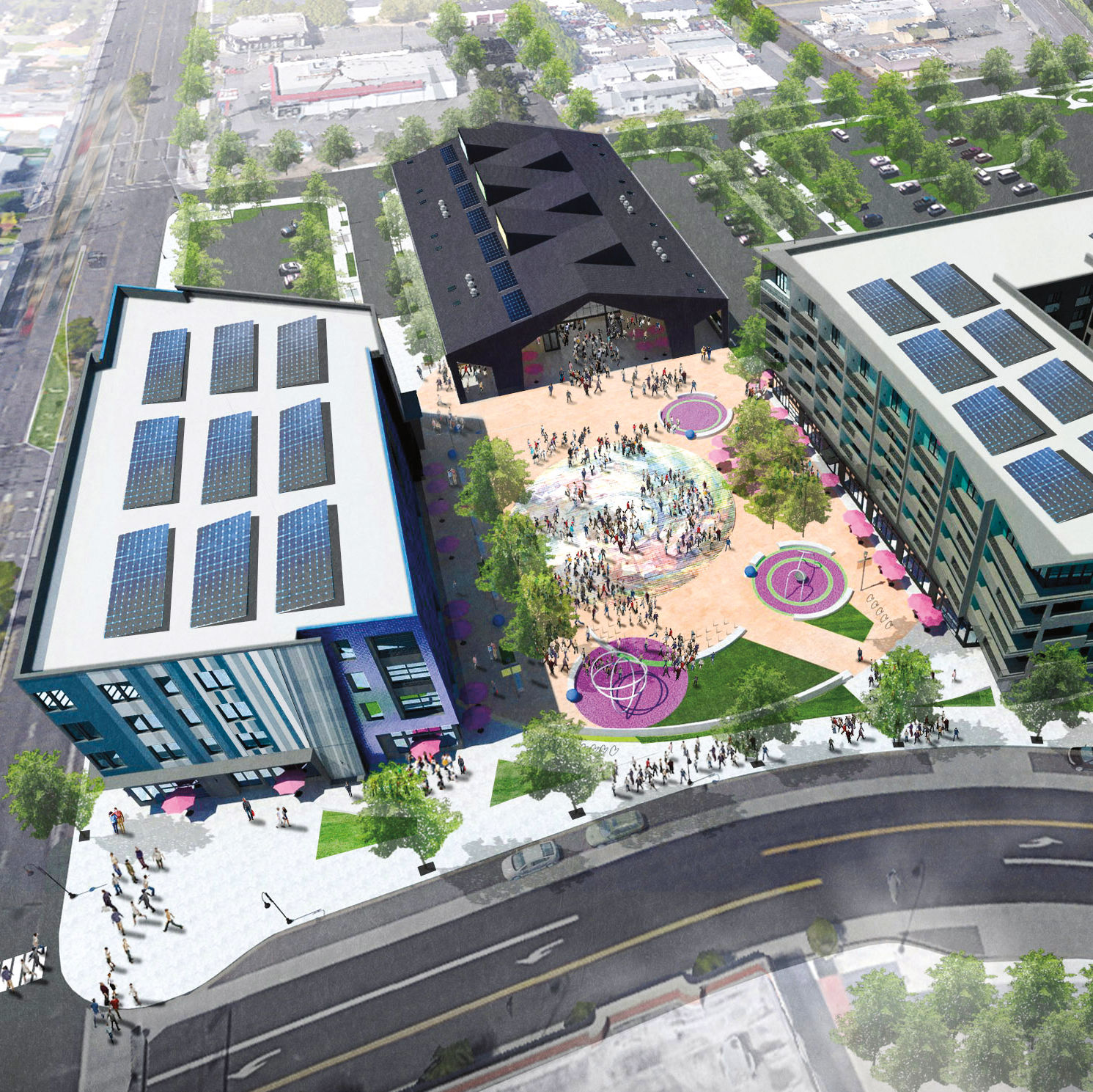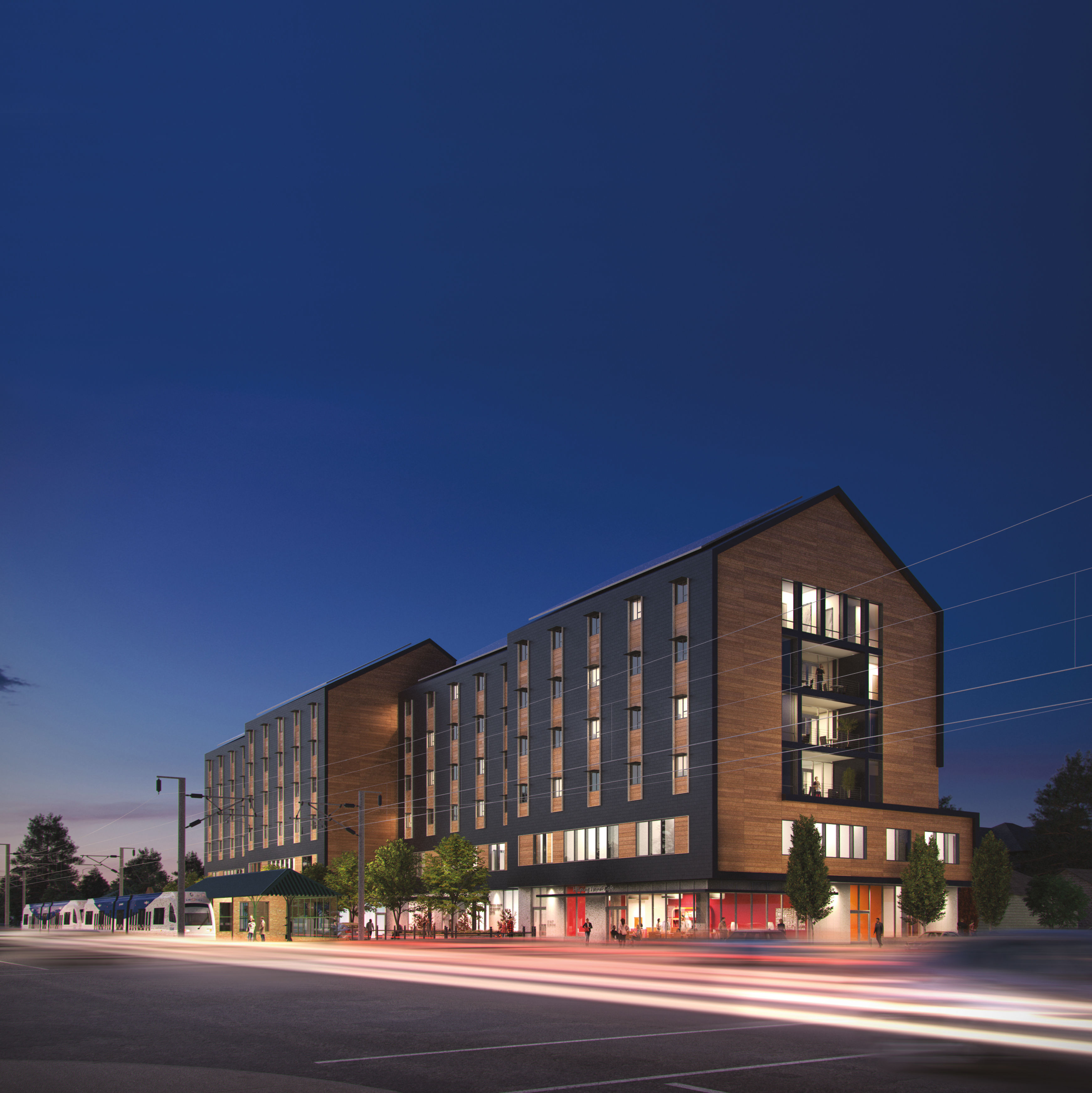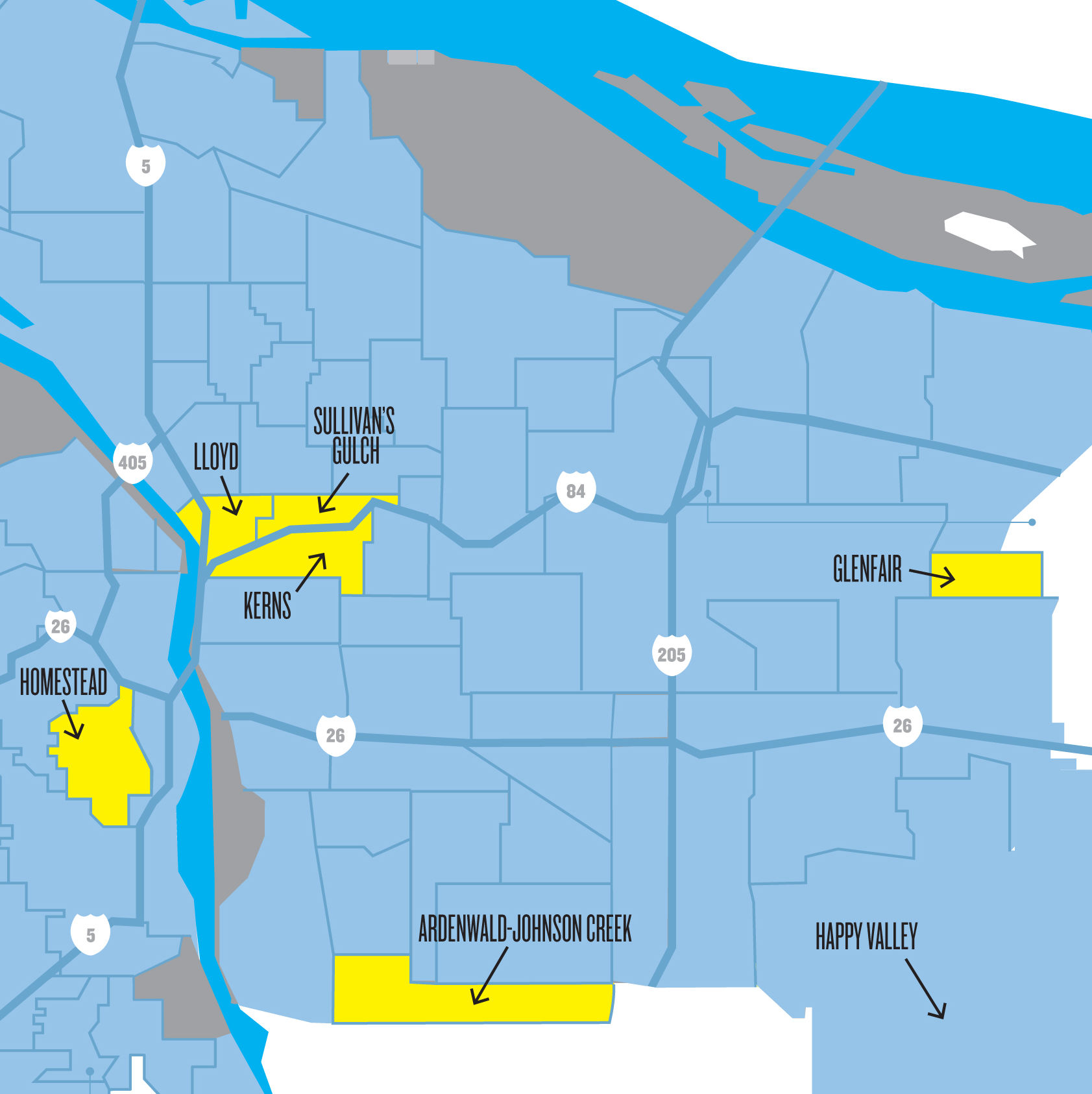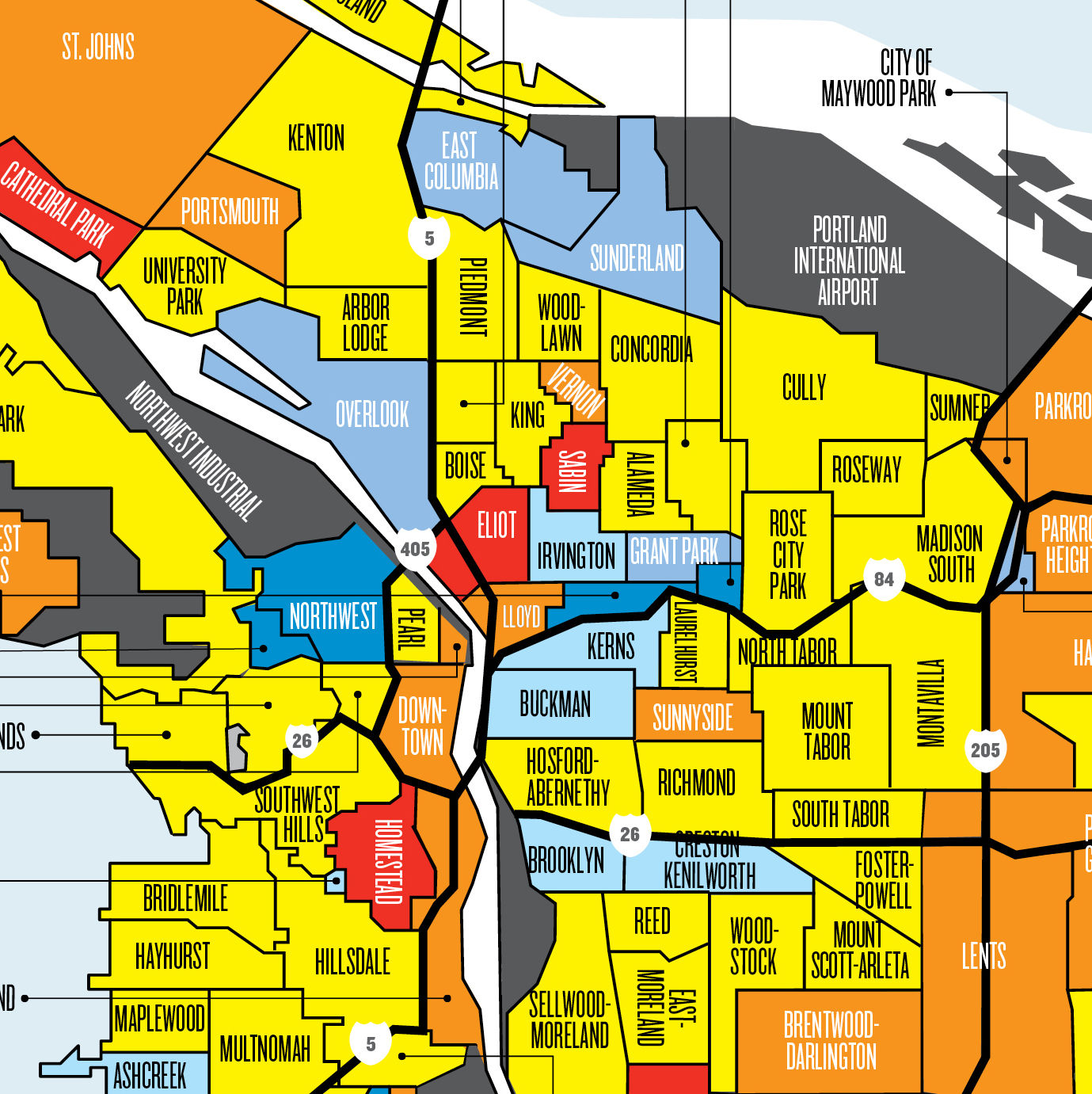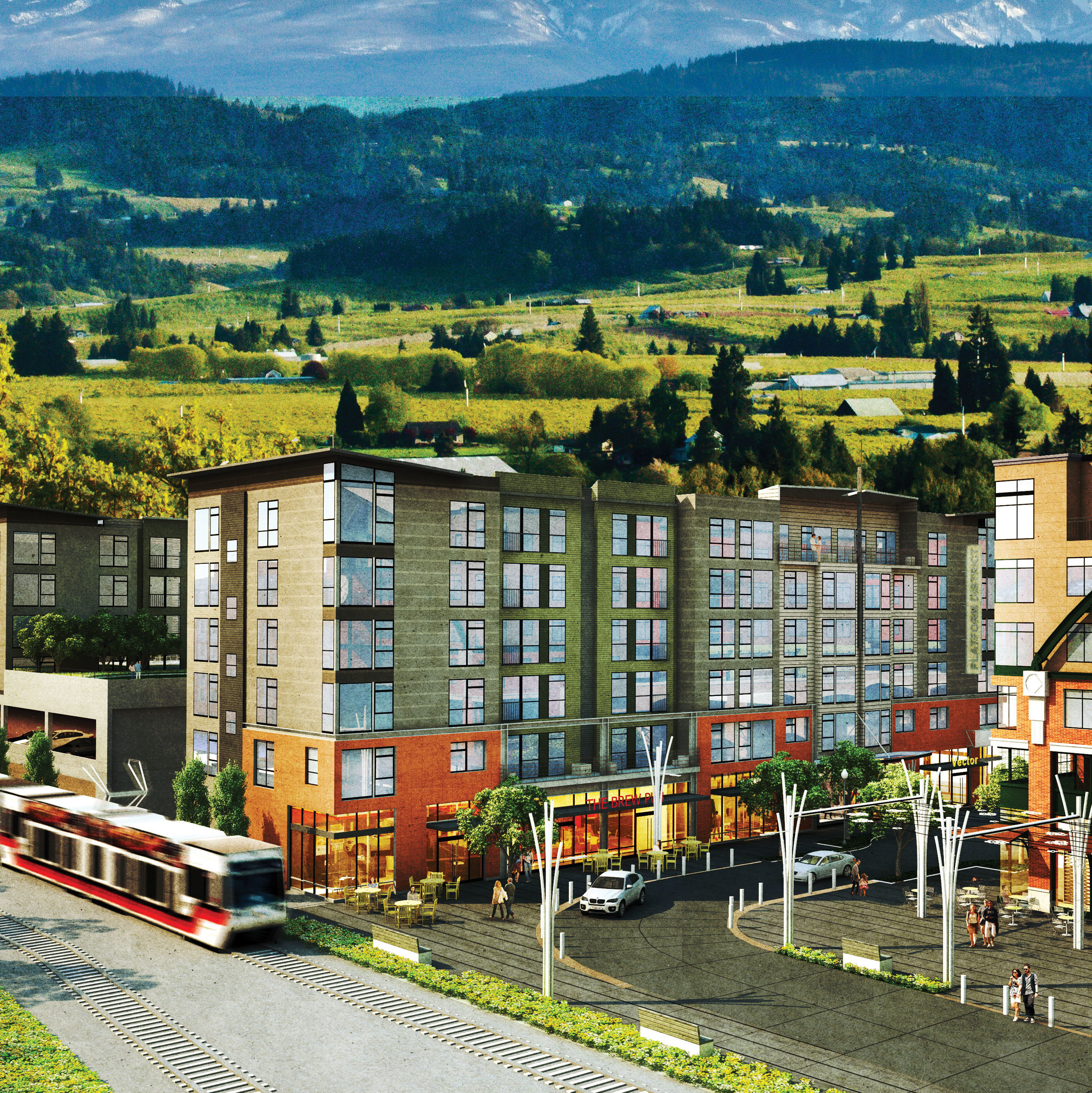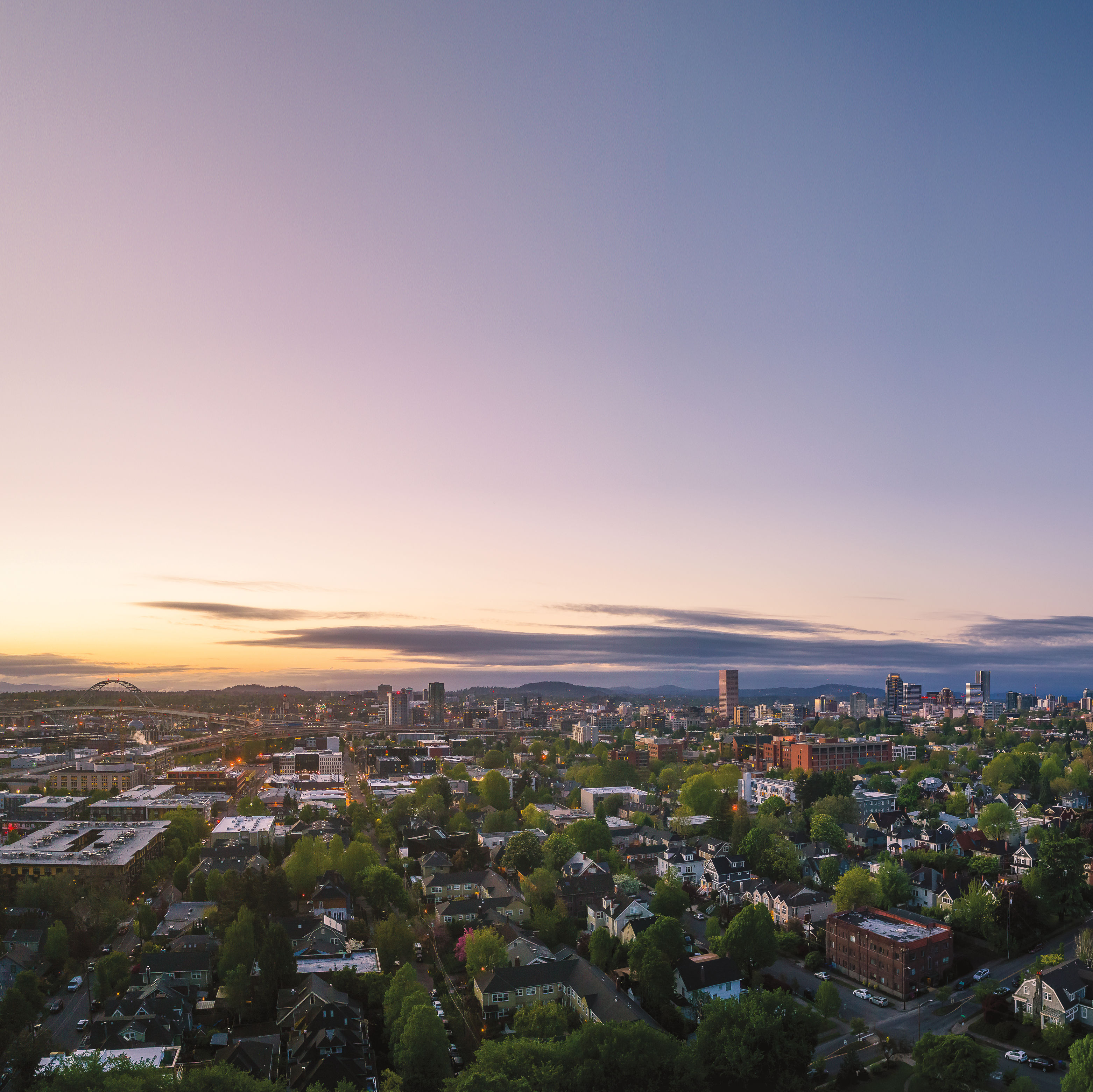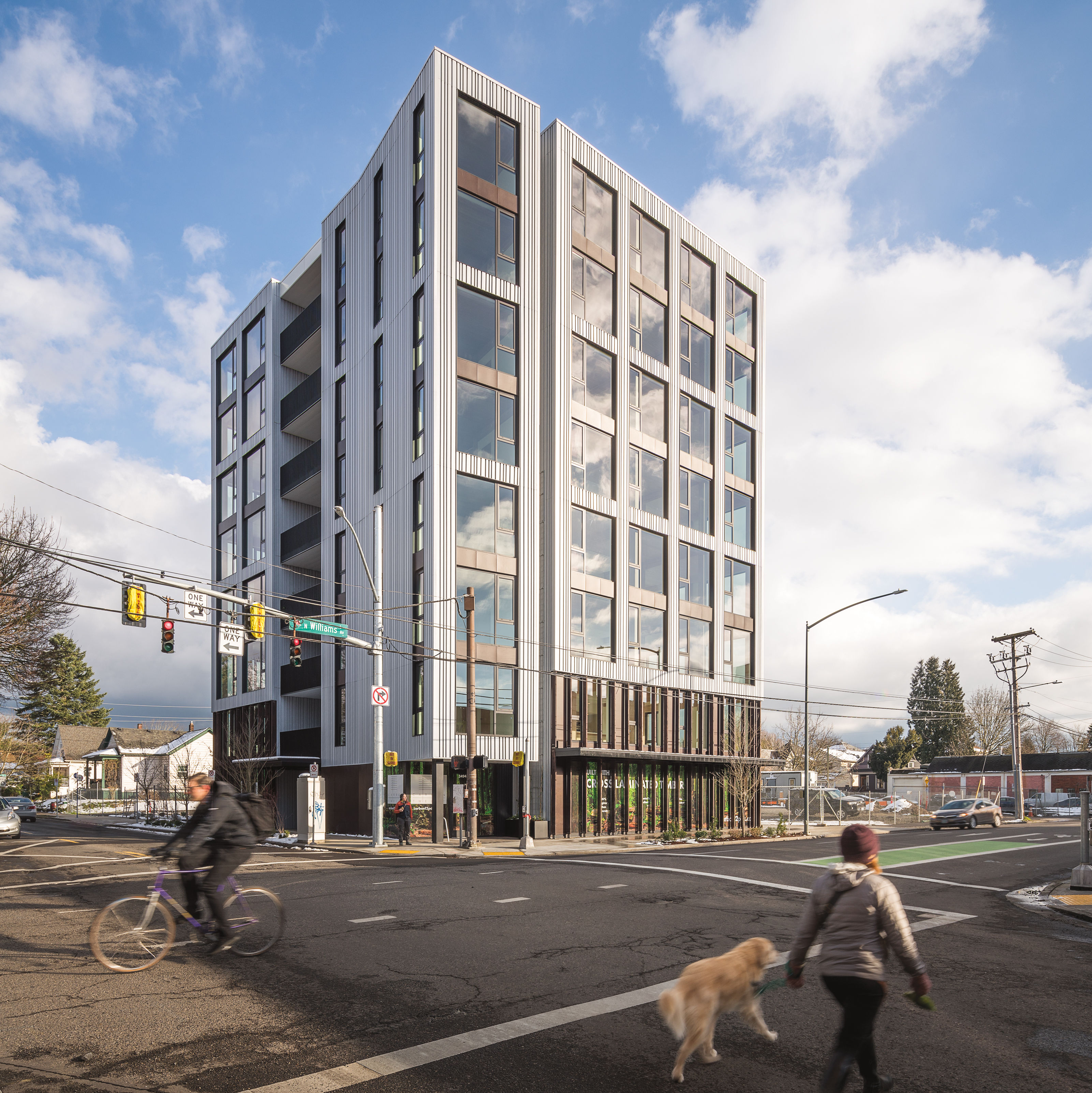I Left Portland to Escape Crazy Development. But Guess What?
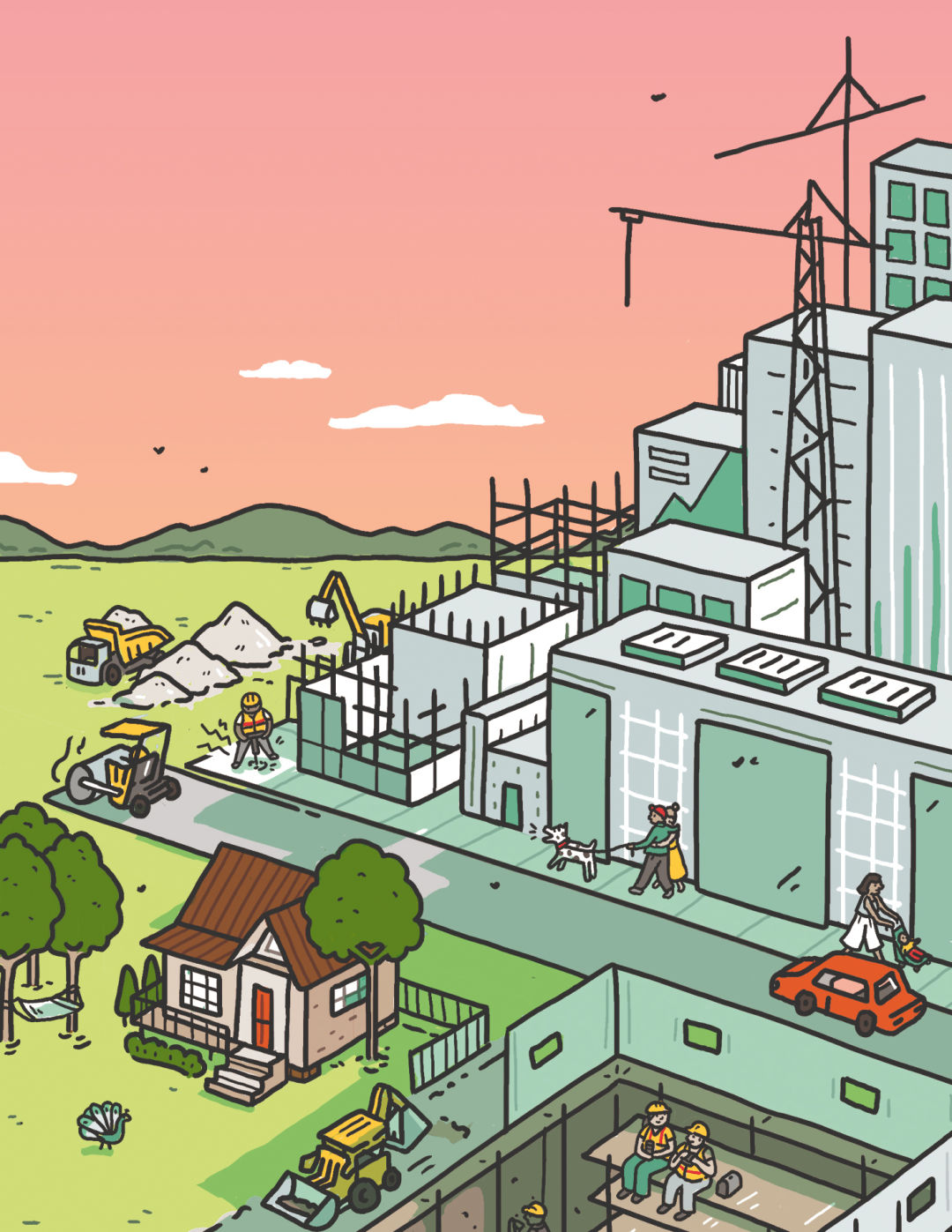
Image: Kati Lacker
The rent increase letter was stuck to our door with a piece of masking tape.
As my husband, Joe, and I neared the end of a nine-month lease in a North Portland apartment building, we expected some increase on our 809-square-foot home. But not to pay more than $2,000 a month, as the letter said.
“For this place?!” we laughed, thinking of the trash overflowing with dog poop bags downstairs and our neighbor down the hall who, by the sound and smell of it, tumbled tennis shoes and takeout Chinese food in her dryer. Our rental search began that night.
Our tale of leaving Portland-proper isn’t tragic—not like stories of people priced out of generational neighborhoods, or of families enduring unlivable conditions. This story? Two white mid-30s artists with so-so credit just wanted some peace, quiet, and a reasonably priced place to live.
But, anyway, this is how it went down for us in late 2015, when huge increases scythed through Portland’s renters. Craigslist made it clear Portland wanted us to beg: to bring blank checks to open houses, to take second jobs to cover first and last month. Then, one afternoon, as I browsed online listings, I noticed a red dot on the very edge of the metro area. A house. Description: “City Farmhouse.”
When we stepped into City Farmhouse—a 20-minute drive to a place I called “the country” as a kid—I knew this was where we should be. The creak of hardwood floors made me feel like it was OK to leave the city. Like out here, we wouldn’t miss anything, but instead live a new kind of life. A fat-bellied tree moaned in the breeze. An orchard peeked over the rickety old fence.
City Farmhouse was cheaper and bigger than our apartment. We relished the feeling of being alone. We took afternoon walks down the center of our gravelly road. We bought a fire pit. We loved our new proximity to the wild, the tracks we’d see in morning frost. One spring day, I strung up a hammock. I could see the Coast Range looming purple as I lay there, falling asleep, no concern that anyone would see me swinging.
I’m glad I did. Because in less than a year, everything changed.
You can try to leave development. But in a booming West Coast metropolis, development will not leave you. (One estimate says the whole Portland-Vancouver metroplex could add 1.2 million people by 2060.) By fall, our little slice of heaven was plowed, uprooted, paved, lit by streetlights. Our street even got a new name. I admit that, after a major construction project started next door, I became the lady running outside in her pajamas to yell at workers when their machinery shook my house in the middle of a conference call. And one predawn day last summer, I was happily pecking away at my computer when a leaf blower’s scream cut through the silence.
“No!” I yelled at the man operating it, who powered down as Pajama Lady approached, arms waving. “No!”
“I’m sorry,” he stammered. “When would be better?” I pointed east. “You need to wait for the sun to come up.”
Yes, of course I wrote a bitchy email to the developer, telling him I didn’t like his project because he uprooted old trees across the street. (In Portland, people would have chained themselves to the damn things!) A couple of days later, the CEO showed up on my doorstep, shook my hand, and asked me over to the job site. There he showed me the blueprints for a new industrial facility. Yes, it would be loud, he said, a little apologetically, and it would definitely change this from old farmland to city. But it also would provide 250 jobs to the area.
Goddammit. I couldn’t be angry at the opportunity he was building. I was just mad my little bubble was bursting.
City Farmhouse is more city than farm now: more traffic, more noise. But the mountains are still there when the sun sets. The peacocks, as I write this, are doing their bizarre mating dance. Doves roost in the apple tree outside my window. Recently, on a dark winter night, as we steered down the road a coyote glided past our headlights. It stopped in the last remaining empty field to watch us go by.
We pulled over, too: to get a look at a rough remnant of the place this used to be. I rolled down the window and the coyote and I looked at each other for a second, neither of us ready to run away. I howled toward it—grateful and comforted that, at least for now, this place remains untamed enough for us both to live here together.
